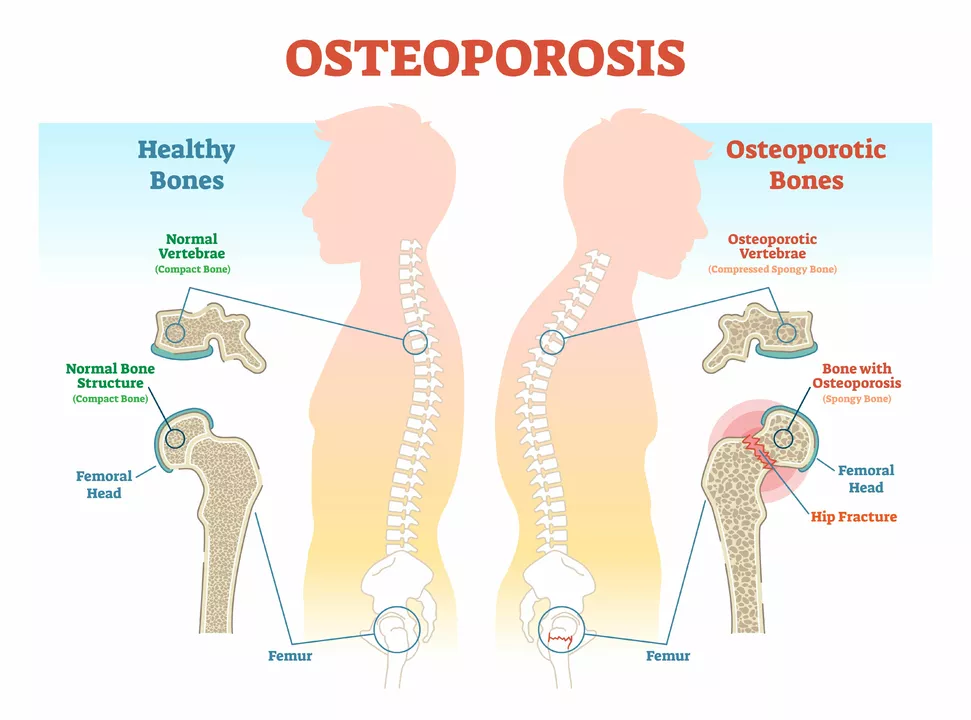Osteoporosis – What It Is and How to Fight It
Ever wonder why a simple fall can leave an older adult with a broken wrist? That’s often osteoporosis at work – the silent thinning of bone that makes fractures more likely. It isn’t just something seniors have to accept; it’s a condition you can slow down or even stop with the right habits.
Why Bones Lose Strength
Your skeleton is constantly being rebuilt. New bone tissue replaces old, and this balance depends on hormones, nutrition, and activity. When calcium, vitamin D, or exercise fall short, the rebuilding slows, leaving pores in the structure. Genetics set the stage, but lifestyle decides the plot. Smoking, heavy drinking, and a diet low in dairy or leafy greens speed up bone loss, while weight‑bearing moves like walking or lifting push it back.
Everyday Moves to Keep Bones Strong
The good news? You don’t need a gym membership to protect your bones. A daily walk, climbing stairs, or gardening can load the skeleton enough to signal bone growth. Pair that with strength‑training moves – squats, push‑ups, or resistance bands – two times a week and you’ll see real benefits.
Food matters too. Aim for three servings of calcium‑rich foods such as milk, yogurt, cheese, tofu, or fortified plant milks. Add vitamin D sources like oily fish, eggs, or sunlight exposure to help your body absorb that calcium. If diet falls short, a supplement can fill the gap – just check with a pharmacist or doctor first.
Medications are another tool. Doctors may prescribe bisphosphonates, selective estrogen receptor modulators, or newer bone‑building drugs depending on your risk profile. Our site offers easy guides on how to buy common meds safely online, so you’ll know what to look for if a prescription is needed.
Finally, keep an eye on your numbers. A simple bone density scan tells you where you stand and whether you need extra help. Talk to your GP about getting tested every few years, especially after age 50 or if you’ve had a fracture.
Bottom line: osteoporosis isn’t a fate sealed at birth. With better food choices, regular movement, smart supplements, and the right medical advice, you can keep your skeleton sturdy for decades to come.

As a copywriter, I've recently researched the impact of Bromocriptine on bone health. It's fascinating to learn that this medication, commonly used for treating Parkinson's disease and certain hormone imbalances, can also affect our bones. Some studies suggest that Bromocriptine may have a positive impact on bone density, potentially reducing the risk of fractures. However, more research is needed to fully understand these effects and determine the best course of action for patients. It's always amazing to see how a single drug can impact our bodies in so many different ways!
Read More